Malaysia, a stunning country graced with numerous holiday seasons, comes alive, bringing with it a flurry of celebrations, travel escapades, and joyous gatherings. Amidst the excitement, it’s crucial not to overlook our health and wellness. For many, the holiday season can pose specific health challenges and disruptions to our regular routines, including managing medications and supplements effectively.
To provide expert guidance on maintaining well-being during the holidays, we engaged in an insightful discussion with a knowledgeable pharmacist, Dr Hanisah Azhari, the Co-founder of My Antidote Pharmacy and a Pharmacy Lecturer at Universiti Kebangsaan Malaysia (UKM).
In this exclusive interview, we explore the vital role of supplements and medications, as well as invaluable advice on how to strike a balance for a healthy and enjoyable holiday season.
1Twenty80: What are some common digestive issues that people may experience during the holidays, and what causes them?
Dr Hanisah Azhari: There are a few common digestive issues. The common problem is overeating due to the joy of the holiday trip. People do not monitor their portions, or eating time, and eat in larger amounts than normal. These lead to the inability of the stomach to process the excessive food intake, leading to discomfort, bloating, and indigestion.
Irregular meal times and changes in diet during holidays can also lead to heartburn, constipation (low fibre intake during holidays), and exacerbation of GERD symptoms. In addition, changes in diet and hygiene in food preparation can also lead to food poisoning and diarrhoea.
It’s recommended to practise moderation in food and drink consumption during the holiday period. Stay hydrated and incorporate enough fibre-rich foods into your meals. If you have specific health issues, plan your meals regularly to prevent any exacerbation that will affect your holiday.
1Twenty80: Are there over-the-counter medications or remedies that can help alleviate digestive issues during the holidays?
Dr Hanisah: Yes, there are quite a few over-the-counter (OTC) medicines that can help to control digestive issues during the holiday. Some of them include:
- Antacids
Simple antacids like MMT can be used to provide quick relief or heartburn and neutralising excess stomach acid. They come in tablet and sachet form, which is convenient for you to carry in a bag.

- Probiotics/Fiber
Taking them regularly is good for preventing digestive issues related to constipation.
- Laxatives
When you realise that your bowel motion is not as normal, taking one dose of laxative can help to clear your bowel. Remember to take enough fruits, vegetables, and water and do not depend on laxatives only.
- Anti-Diarrheal Medications
Loose bowel can happen due to the foods that you eat. By having this medicine with you, it helps to stop the loose bowel so you can keep enjoying your holiday.
- Motion Sickness Medications
People who have issues with motion sickness can keep a spare medicine to help them cope with travelling. It is important to eat the medicines around 20 minutes before your journey.
- Simethicone
Gas and stomach discomfort can be relieved by taking simethicone preparation.

- Hydration
Drink enough water to keep you hydrated throughout your journey.
1Twenty80: How can pharmacists advise people on making healthier food choices and avoiding digestive discomfort while enjoying holiday meals?
Dr Hanisah: Pharmacists can play a crucial role in advising people to make healthier food choices and avoid digestive discomfort while enjoying holiday meals. Here are some tips and recommendations that pharmacists can offer to their customers:
- Portion Control
Discuss the importance of portion control. Suggest using smaller plates and serving utensils to help control portion sizes. Do not overeat and overindulge the foods.
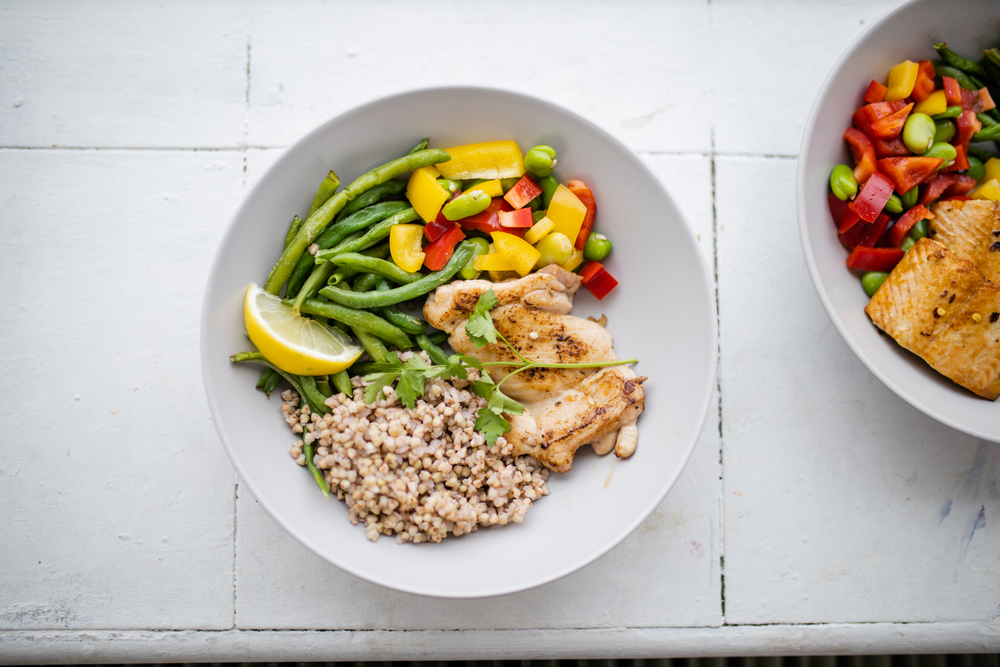
- Balanced Meals
Emphasise the importance of balanced meals that include a variety of foods, such as lean proteins, vegetables, whole grains, and fruits.
- Fibre-Rich Foods
Recommend including fibre-rich foods like fruits, vegetables, whole grains, and legumes in holiday meals. Fibre can aid in digestion and help prevent constipation.
- Limiting High-Fat and Spicy Foods
Advise individuals to enjoy high-fat and spicy dishes in moderation, as these can contribute to indigestion and heartburn.
- Hydration
Stress the importance of staying hydrated by drinking water throughout the day. Dehydration can exacerbate digestive issues.
- Limiting Sweets
While sweets are a holiday tradition, remind customers that excessive sugar intake can lead to digestive discomfort. Suggest alternatives like fruit-based desserts or lower-sugar options.
- Food Allergies and Sensitivities
Ask customers about any food allergies or sensitivities and provide guidance on how to navigate holiday meals safely. Recommend alternative ingredients or dishes if needed.
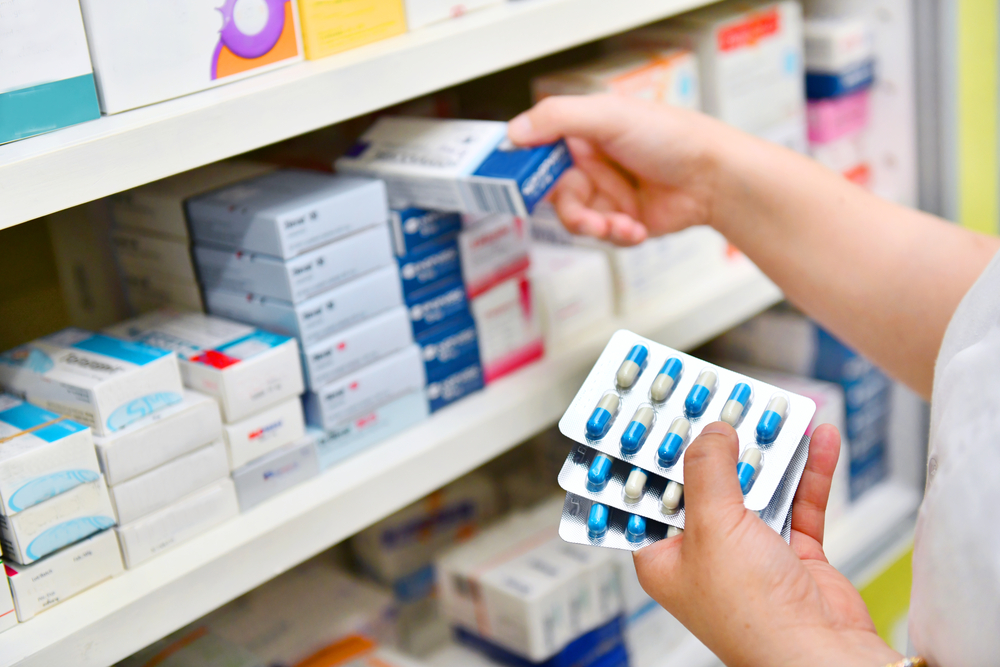
- Over-the-counter Medications
Inform customers about OTC medications that can provide relief from common digestive issues, such as antacids for heartburn or simethicone for gas and bloating. Provide information on proper usage and potential interactions.
- Digestive Supplements
Discuss the use of digestive supplements, such as probiotics, if appropriate. Explain how these supplements can support gut health and potentially reduce digestive discomfort.
- Follow-Up
Encourage customers to follow up with a healthcare provider if they have chronic digestive issues or if their symptoms persist despite lifestyle modifications and OTC treatments.
Pharmacists can provide personalised advice based on an individual’s specific needs and health conditions. They can also refer customers to registered dietitians or other healthcare professionals for more comprehensive dietary guidance. By offering practical tips and information, pharmacists can help people make informed choices and enjoy their holiday meals while minimising digestive discomfort.
1Twenty80: What are the potential consequences of missing doses of crucial medications during the holidays?
Dr Hanisah: Missing doses of crucial medications during the holidays can have significant consequences for one’s health and well-being. It’s essential for individuals to maintain their medication routines even during festive times. Here are some potential consequences of missing doses of crucial medications:

- Worsening Health Conditions
Depending on the medication and the medical condition it’s treating, missing doses can lead to the exacerbation of health issues. Chronic conditions such as diabetes, hypertension, or heart disease may become uncontrolled, increasing the risk of complications.
- Symptom Flare-Ups
For individuals with chronic conditions like asthma, allergies, or autoimmune disorders, missing doses of medications can lead to symptom flare-ups.

- Increased Risk of Hospitalisation
In some cases, missing doses of crucial medications can lead to severe health problems, potentially necessitating hospitalisation. For example, individuals with epilepsy who miss their antiepileptic medications may experience seizures.
- Blood Clotting Disorders
Some individuals take blood-thinning medications (anticoagulants) to prevent blood clots. Skipping doses can increase the risk of blood clot formation, potentially leading to dangerous conditions like deep vein thrombosis or pulmonary embolism.
- Mental Health Deterioration
For individuals taking medications for mental health conditions such as depression, anxiety, or bipolar disorder, missing doses can lead to worsening symptoms, emotional distress, and potential relapse.
To avoid these potential consequences, it’s important for individuals to adhere to their prescribed medication schedules, even during the holidays.
1Twenty80: What advice do you have for individuals who accidentally miss doses of their medications while caught up in holiday festivities or travel?
Dr Hanisah: If you do miss a dose, follow the instructions provided by your healthcare provider or pharmacist for what to do next. In some cases, taking the missed dose as soon as you remember may be appropriate, while in others, it may be best to skip the missed dose and resume the regular schedule.
Always seek professional advice if you’re unsure about how to proceed after missing a dose of medication. Here are some tips to help with medication adherence:
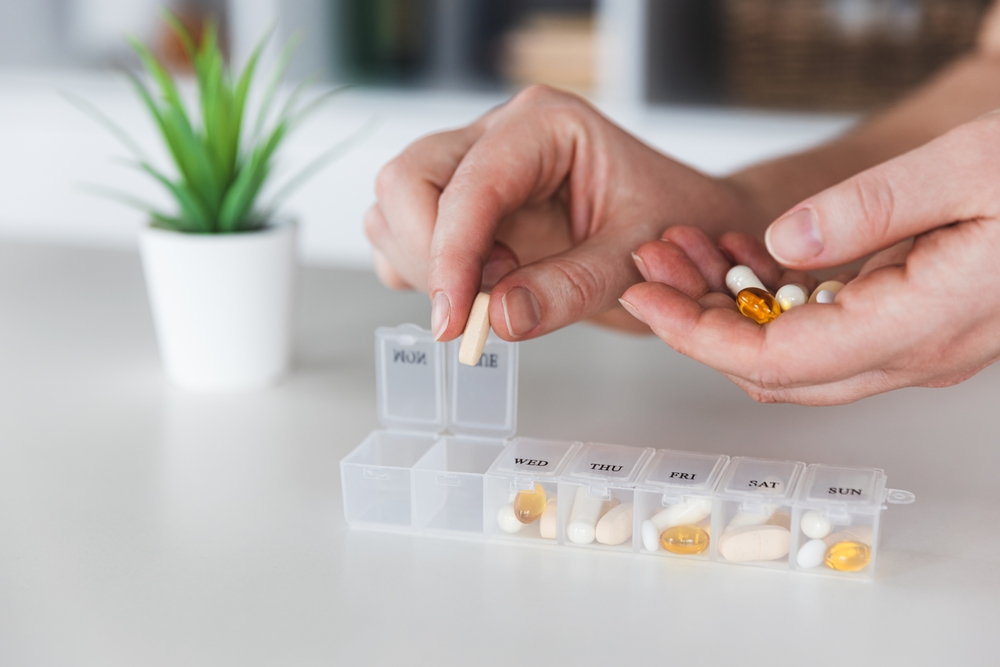
- Set reminders: Use alarms, phone apps, or medication organisers to remind you to take your medications.
- Plan ahead: Ensure you have an adequate supply of medications before the holidays, so you don’t run out.
- Communicate with Healthcare Providers: If you have concerns about medication side effects or timing, consult your healthcare provider for guidance.
- Establish a routine: Incorporate medication-taking into your daily routine, making it a habit.
- Educate family and friends: Let your loved ones know about your medication schedule, so they can provide support and reminders when needed.
- Travel medication kit: When travelling during holidays, pack a travel medication kit with sufficient supply of your medications, a copy of your prescription, and a list of your medications and dosages. Carry it with you at all times.
- Pack extra medication: If you’re travelling, carry extra doses of your medications in case of delays or unexpected events that might disrupt your schedule.
- Stay organised: Keep your medications organised in their original containers, and check expiration dates to ensure they are still effective.
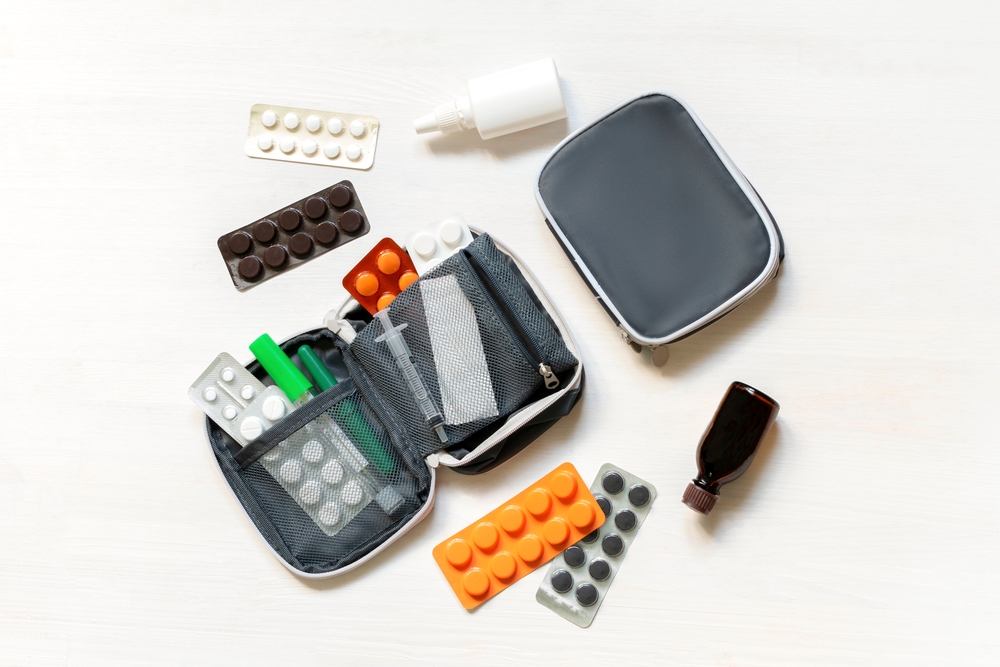
Remember that maintaining consistent medication adherence is essential for managing chronic conditions and staying healthy during the holidays and beyond. If you have any concerns or questions about your medications, always consult with your healthcare provider or pharmacist for guidance tailored to your specific situation.
1Twenty80: For individuals with diabetes, how can they enjoy holiday meals while managing their blood sugar levels effectively?
Dr Hanisah: Individuals with diabetes can enjoy holiday meals while effectively managing their blood sugar levels by making thoughtful food choices, monitoring their blood glucose, and following a few practical strategies. Here are some tips to help:
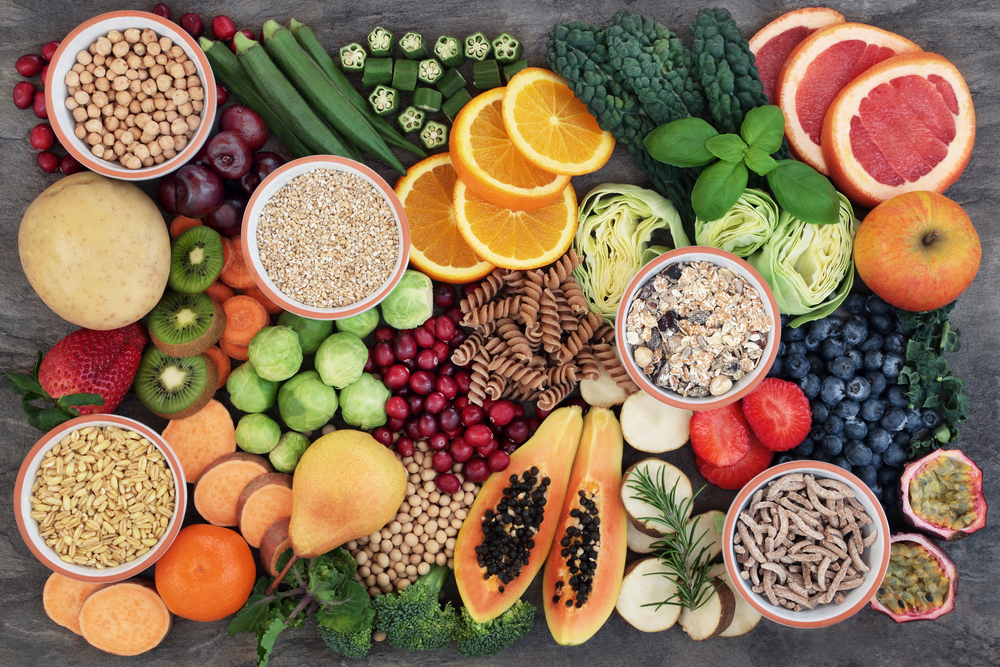
- Plan ahead: Planning is crucial. Review holiday menus in advance and choose dishes that align with your dietary needs and blood sugar goals.
- Control portion sizes: Pay attention to portion sizes, and use smaller plates to help control portions. Avoid overindulging in high-carb or sugary foods.
- Choose complex carbohydrates: Opt for complex carbohydrates like whole grains, vegetables, and legumes over simple carbohydrates and sugary foods. These foods have a gentler impact on blood sugar.
- Fiber-rich foods: Include fibre-rich foods like salads, leafy greens, and non-starchy vegetables. Fibre can help stabilise blood sugar levels.
- Lean protein sources: Incorporate lean protein sources like beef, chicken, fish, or tofu into your holiday meal. Protein can help you feel full and stabilise blood sugar.
- Limit sugary and high-fat foods: Enjoy sweet treats and high-fat foods in moderation. If you have a small portion, savour it slowly. Consider sharing desserts with family and friends.
- Stay hydrated: Drink plenty of water throughout the day to help control blood sugar levels and avoid overeating.
- Monitor blood glucose: Regularly check your blood glucose levels, especially before and after meals. This will help you understand how different foods affect your blood sugar.
- Medication and insulin management: If you take diabetes medications or insulin, follow your prescribed doses and timing. Discuss any necessary adjustments with your healthcare provider if needed.
- Sugar substitutes: Consider using sugar substitutes or safe sweeteners in recipes to reduce sugar content without sacrificing sweetness.
- Educate friends and family: Inform your loved ones about your dietary needs, so they can provide support and make appropriate meal choices when hosting holiday gatherings.
- Have healthy snacks on hand: Carry healthy snacks like nuts, seeds, or low-carb options to help stabilise blood sugar in case of unexpected delays or hunger.
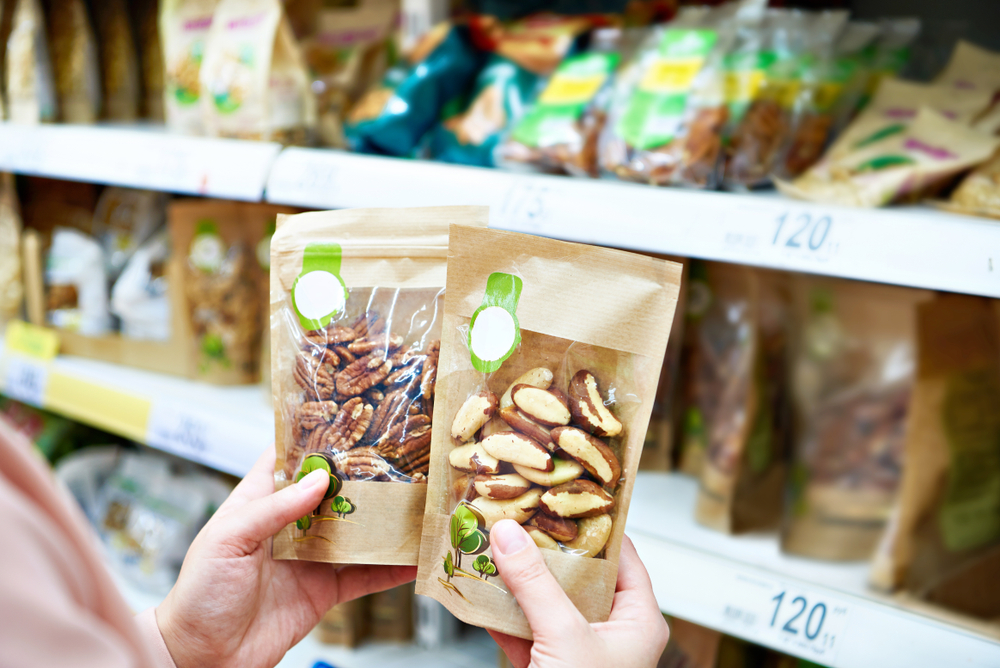
1Twenty80: Are there specific considerations for individuals who need to travel during the holidays while taking prescription medications?
Dr Hanisah: Yes, individuals who need to travel during the holidays while taking prescription medications should plan carefully to ensure they have a safe and hassle-free trip. Here are some specific considerations and tips:
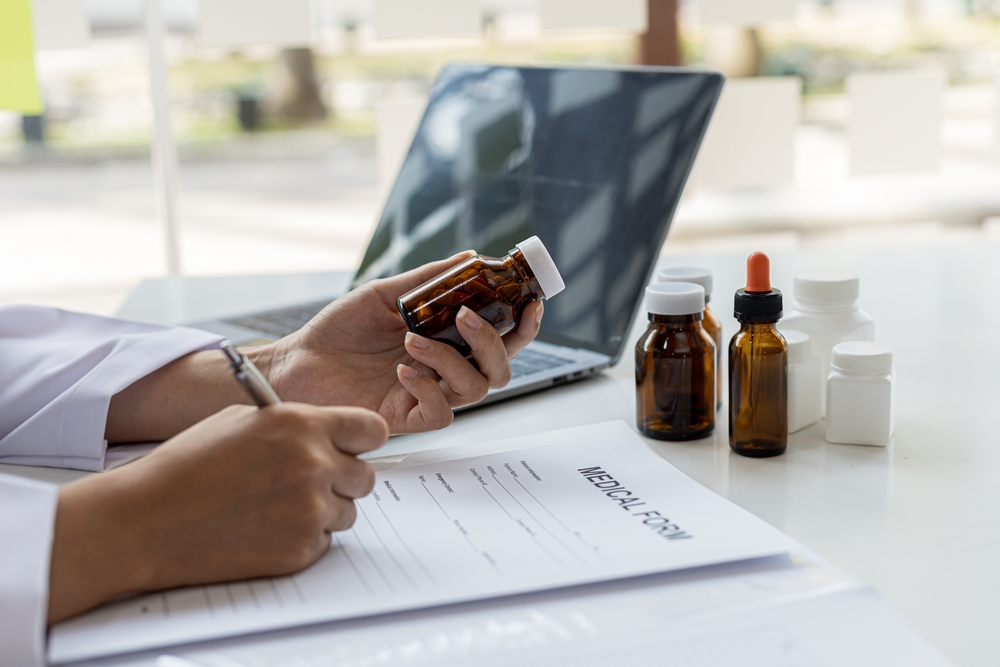
- Medication supply: Ensure you have an adequate supply of all your prescription medications to cover the entire duration of your trip, including any potential delays.
- MEDICATION LIST: Create a list of all the medications you’re taking, including their names, dosages, and the conditions they treat. Carry this list with you, as it can be crucial in case of an emergency or if you need medical attention while travelling.
- Prescription labels: Keep your medications in their original pharmacy-labelled containers. This provides important information about your medications and can help if you encounter any issues during security checks or customs inspections.
- Carry-on bag: Pack your medications in your carry-on bag rather than in checked luggage. This ensures you have access to them at all times.
- Travel documentation: Carry a copy of your prescriptions, as well as a letter from your healthcare provider explaining your medical condition and the necessity of your medications. Some countries may have specific entry requirements for travellers with prescription medications.
- Time zone changes: If your trip involves crossing time zones, discuss with your healthcare provider how to adjust your medication schedule to account for the time difference.
- Medication storage: Be mindful of the storage requirements for your medications. Some medications may need to be refrigerated, while others should be stored at room temperature. Plan accordingly, especially if you’re travelling to destinations with extreme temperatures.
- Local pharmacies: Research the locations of pharmacies at your destination in case you need to refill prescriptions or purchase over-the-counter medications.
- Special Medications: If you’re travelling with specialty medications or equipment (e.g., insulin, syringes, or medical devices), take extra precautions to ensure they are handled properly and meet security requirements. By taking these precautions and planning ahead, individuals can travel safely with their prescription medications and minimise any disruptions to their treatment regimen during the holiday season or any time of year.

1Twenty80: Can you recommend items that should be included in a holiday first-aid kit for addressing common accidents or illnesses that may occur during festive gatherings?
Dr Hanisah: Creating a holiday first-aid kit is a proactive way to address common accidents or illnesses that can occur during holiday gatherings. Here’s a list of essential items to include in your holiday first-aid kit:
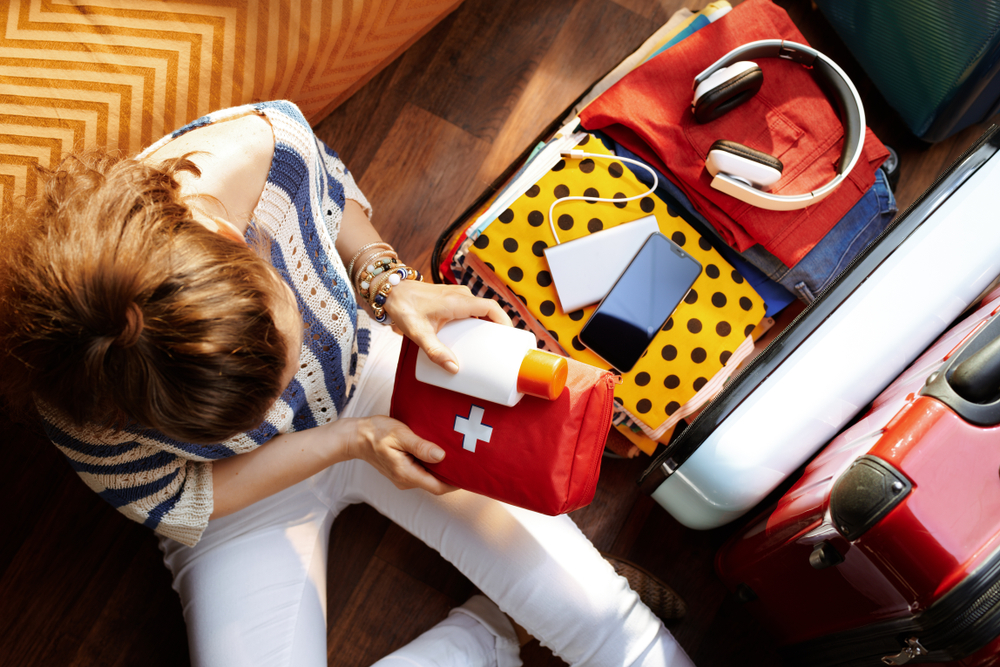
- Adhesive bandages: Various sizes of adhesive bandages to treat minor cuts, scrapes, or blisters.
- Sterile gauze pads and tape: These are useful for covering and protecting larger wounds.
- Antiseptic wipes or solution: To clean wounds and prevent infection.
- Tweezers: For removing splinters or foreign objects from the skin.
- Scissors: To cut tape, gauze, or clothing if necessary.
- Pain relievers: Over-the-counter pain relievers such as paracetamol for headaches, muscle aches, or minor injuries. Make sure you have options suitable for all ages if children are present.
- Thermometer: A digital thermometer to monitor body temperature.
- Allergy medications: Antihistamines for allergic reactions and itchy skin.
Make sure to store your holiday first-aid kit in an easily accessible location, and ensure that others in your household or gathering are aware of its whereabouts.

- Motion sickness medications: Medications for motion sickness during travel.
- Anti-diarrheal medications: For relief from digestive discomfort caused by mild diarrhoea.
- Antacids: To ease indigestion or heartburn that can result from festive eating.
- Aloe vera gel: Helpful for soothing minor burns or sunburns.
- Insect repellant: If your holiday gathering takes place outdoors, insect repellent can help prevent bug bites.
- Extra masks and hand sanitizer: Given the ongoing importance of infection control, having extra masks and hand sanitizer available can be prudent.
Make sure to store your holiday first-aid kit in an easily accessible location, and ensure that others in your household or gathering are aware of its whereabouts. Regularly check the kit to replace expired items and restock supplies as needed. Having a well-prepared first-aid kit can help you respond effectively to common accidents or health issues that may arise during holiday gatherings.
Remember that returning to regular medication routines and healthy lifestyles is a journey, and it’s normal to encounter challenges along the way. By taking gradual steps and seeking support when needed, you can make a successful transition and continue to prioritise your health and well-being.
Traveling can be lots of fun, and at the same time, it can be disastrous as well. Planning ahead will really help you enjoy your holiday with your loved ones. Utilise your community pharmacists to assist you in preparing for your holiday trip. Bring enough supplies so that you have emergency medicines on hand when needed. Travel wisely and prepare ahead.















